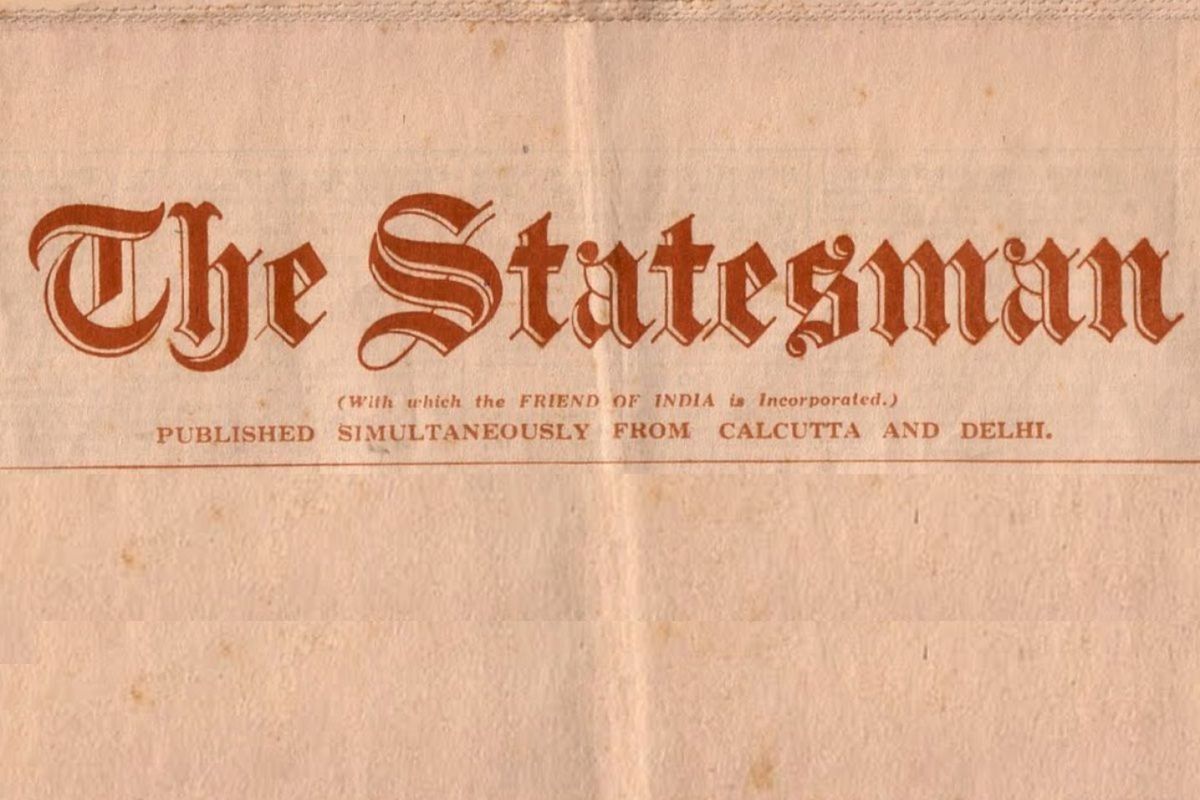A New Day, A New Dawn
There is a surprise for the readers. A special Poila Boishakh gift from none other than West Bengal chief minister Mamata Banerjee. Who has written a piece for this special edition.
On this day a century ago, these were some of the news items The Statesman readers got to read about India and the world.

OCCASIONAL NOTE
With the public admission – first made, by the way, at the meeting of the Directors of the Bank of Bengal on Monday last – that the three Presidency Banks are contemplating amalgamation the rumours, current for some weeks past, that the establishment of a State Bank is in contemplation, will receive a new lease of life. The amalgamated Presidency Banks, with a total capital and reserves of some pound 5,000,000, would form the ideal nucleus for a State Bank scheme. The present aspect of the silver problem and the many currency dangers revealed by the war have multiplied indefinitely the force of the arguments advanced in its favour. The most powerful of these arguments – and one which would, perhaps, go far to reconcile the Exchange Banks to the proposal – is based on the fact that a State Bank controlling the paper currency reserve and the Government’s cash balances would be in a position to effect large economies in the use of silver and a considerable popularisation of paper currency. The prosperity of the Exchange Banks, like that of everyone concerned in India’s foreign trade, hinges on the price of silver, and anything which would serve to ease the silver situation would be to the advantage of the Exchange Banks as to that of the whole business world. In any case, the amalgamation of the Presidency Banks need occasion no vital change in the management and methods of their Presidency branches although it may ultimately involve the appearance of a Central Board at a neutral headquarters, possibly Delhi.
THE INDIAN COTTON COMMITTEE S REPORT
Advertisement
SIMLA, AUG 8
In the course of a resolution published today the Government of India state that with regard to the recommendations of the Indian Cotton Committee they are disposed to confine their intervention to the larger matters of general policy or principle, and to questions affecting more than one province. Should necessity arise the Government of India will make further reference to the local Government and administration concerned, to whose discretion will be left the adoption of the various recommendations of the committee. They hope that no time will be lost in considering the recommendation of the Committee in respect of additional appointments in the Agricultural Departments. The Secretary of State has already been addressed regarding the requirements of the different provinces except Burma, for which no proposal has yet been received.
LAHORE TRIBUNAL TRIALS
LAHORE, AUG 8
Judgment was delivered today by the Special Tribunal consisting of Messrs. Brasher, Prenter and Harris in the case against Sant Singh, son of Hari Singh Khatri, who was charged with offences under Section 121A, 127 and 152 I.P.C. This man, it may be remembered, was wounded by buckshot during the riot on the Lahore small. Sant Singh was discharged. Before the same tribunal the hearing was resumed today of the case against Ganda Singh, of Hoshiarpur, who stands charged with offences under Sections 224A, I.P.C. and Rule 25(A) Defence of India Act. Sardar Mehtab Singh, Public Prosecutor, appeared for Crown, and Mr. Faquir Chand, vakil, defended the accused. After the evidence of defence witnesses had been recorded the case was adjourned to the 11th inst.
CHANDPUR GHAT TRAGEDY
Serang Abdul Rahaman of the S.S. Buzzard, plying between Chandpur and Goalundo, has been charged by the police under Section 304A I.P.C. with causing the death of Miss Rayson of the Dacca Convent by doing a negligent act in not properly securing the gangway while the steamer was at the Chandpur ghat. The accused appeared before the Sub-divisional Magistrate of Chandpur on the 1st August but as the prosecution wanted further time the case has been adjourned to the 15th instant, the accused being released on bail of Rs 50.
EMPIRE FLAX GROWING
The interim report of the Empire Flax Growing Committee recommends the continuance of Government’s efforts to develop flax-growing within the empire until full value is derived from the efforts. Every assistance should be given to secure the speedy extension of flaxgrowing in British East Africa. Flaxgrowing in other parts of Africa, for example Egypt, Nyasaland, Rhodesia, and South Africa, seems to present possibilities of success. Results of experiments in India show that flax can be successfully grown, but a system of control, retting necessitating skilled labour and supervision would be necessary to obtain the best results. Successful development would also depend on expert supervision in handling of the crop and its proper preparation and grading for the market.
Advertisement